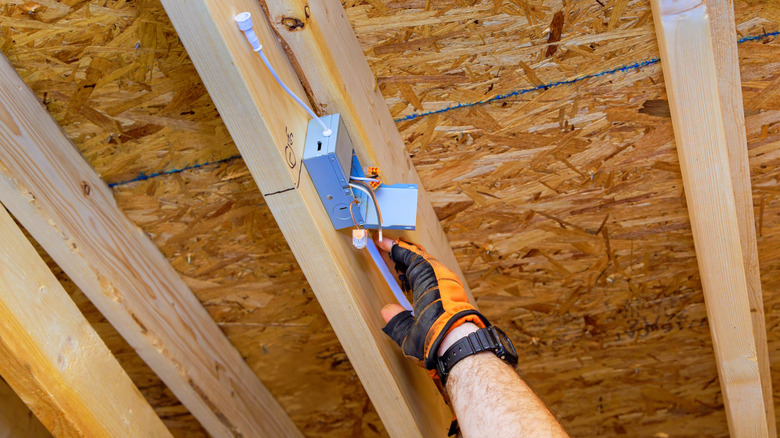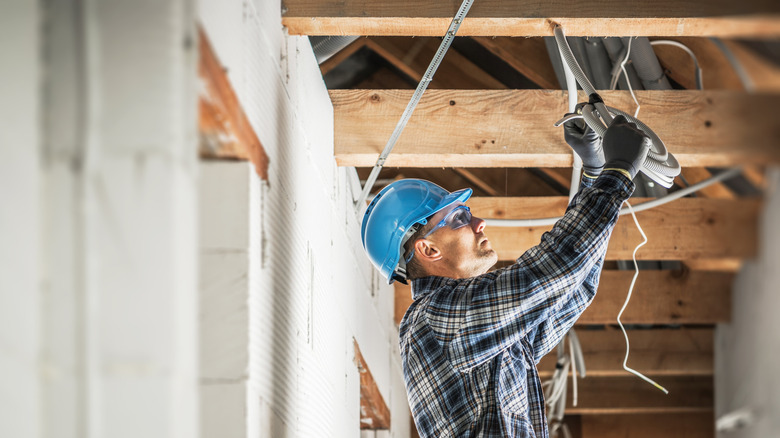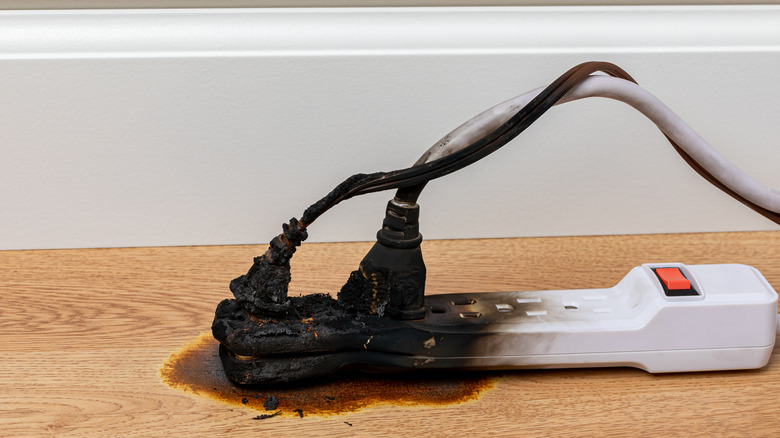I Wired My New House. Here's Why You Shouldn't
When you decide you're going to build your own house, in spite of never having constructed anything more complicated than a doghouse, you can be fairly certain that humility isn't going to be the thing that slows the work down. And so it was, when I took it upon myself to build my family's 2,000-square-foot barndominium, that I confronted the steep challenges of wiring — and got in way over my head.
In the early days of the pandemic, my wife and I made the decision to build a home with cash on hand, and enter an uncertain future without the burden of a mortgage payment. Hiring a licensed electrician (a silly term, as in most jurisdictions, they're all either licensed electricians or criminals) might have cost one-fifth of our total budget, so doing the work myself was the only way it was going to get done without painful tradeoffs. I was convinced that I could master any trade with sheer wit and the University of YouTube. Fortunately for me, fairly early in the framing process, a visitor made a three-word comment that brought me down to earth: "This passed inspection?"
From there, I didn't exactly back down, but I redoubled my efforts to learn the parts I found particularly risky, mostly plumbing and electrical work. To date, I haven't managed to burn down or completely flood my home, but that is the humblest of brags, and there's always tomorrow. Still, knowing what I know now — or more to the point, knowing what I don't know — I'm not sure I'd do the wiring myself again. And I am certain that I wouldn't recommend it to an amateur. My wiring plan was elaborate, detailed, and unorthodox in some ways. And these aren't necessarily reasons to do the work yourself.
When wiring your own home, what you don't know CAN hurt you
It is possible to wire a house, doing all the things YouTube taught you, and to do a very good job indeed. If your home is a small bungalow with a handful of circuits and nothing really unusual, there's a pretty good chance that with care, you can pull it off. What I was doing was not the simplest wiring, and there were some false starts. For example, there's a lot of smart home gadgetry built into the walls, for which I ended up pulling low-voltage wiring to each box after learning how many junction boxes I would need otherwise. There were dozens of complications that, in spite of my careful study, I didn't see coming. I can't give you a comprehensive list because I'm not a licensed electrician ... which is precisely the point.
A novice will invariably have trouble with code compliance, and perhaps even more trouble with efficiency. A homeowner might miss tricks that any electrician will have worked out ages ago, like how to fish cable through corners, avoid switches without a neutral, and identify circuits that will be prone to overheating. I had to learn all manner of arcane knowledge, from running two dedicated circuits to a septic system (one for the pump, one for the alarm) to putting anything with an electric motor, like a refrigerator, on its own circuit – and a thousand other details. And if all that weren't enough, by the end I would have happily hired an electrician just to drive the ground rod here in granite-rich North Georgia (I ended up pushing it into the ground with a tractor bucket).
Electrical code is complex, and amateur wiring mistakes are all-too-easy to make
An experienced businessperson will tell you that forming a committee of 23 people — the size of the first meeting to design what would become the National Electrical Code — is the first step to not solving a problem. Confronted with the current NEC, which is 1,000 pages contributed by 500 code-making panel members, an experienced businessperson might be tempted to walk away and open a food truck specializing in crepes, instead. The whole thing is created by sponsored industry insiders, and codified (often without substantiation) into a document of such staggering convolution and ambiguity that it would make an ordinary bureaucrat blush. It is sold as a product and included by reference into municipal building codes, so that it's as difficult or expensive as possible for a layman to even access, even if the language were to magically become clear.
Just as there's no way for the average DIYer to understand much of the code, there's also no way to determine which recommendations are critically important and which are statistically unlikely. And what do you do when the NEC simply doesn't work? When we started building, AC units required GFCI protection, per the 2020 NEC. My upstairs mini split tripped the breaker every time it kicked on. I eventually just pulled the breaker and replaced it with a non-GFCI model. If I'd had the support that comes with industry association memberships, or even just chatting with pros every morning at the electrical supply house, I would have known the rule was rescinded because of the very problem I was experiencing. Knowing that would have at least eliminated a little of the inspection stress the non-GFCI breaker caused me.
There's a reason actual electricians wire most homes
If you were brought up in an environment with a paucity of either electrical wiring or colorful language, perhaps in Pennsylvania Dutch Country, you can quickly expose yourself to plenty of both by googling "NEC AFCI requirement discussion forum." Electricians put the "pro" in profanity.
Anyway, Arc-Fault Circuit Interrupters are safety devices that detect arc faults and shut down a circuit before a fire can result. They're often viewed as NEC requirements designed to boost circuit-breaker manufacturer revenues, and critics point to a lack of evidence that AFCIs have stopped a significant number of fires. In fact, a lot of electricians are absolutely convinced that the NEC is bloated with industry-benefiting mandates achieved via regulatory capture. Because of all this, what professionals do — as you'll see if you browse the aforementioned forum — is install the AFCIs anyway and grouse about it online.
It's code, after all. But shortcutting code like I did with the AC circuit can be easy in jurisdictions where homeowner wiring must only be inspected by a licensed electrician, not a municipal inspector. Don't try to get away with it. AFCIs prevent fires and electrocution by spotting the characteristics of bad wiring (including loose connections) and damaged wire (including stuff plugged into your receptacles). I was extremely careful with connections, and I still had to re-wire an overfilled junction box that somehow ended up with loose connections inside. Skipping the AFCI might have made lights flicker... or it might have burned down my home and injured my kids, or worse. The realization that I could have decided to leave it off is sobering, and it makes the cost of an experienced electrician look like a bargain at twice the price. Unfortunately, I'm not sure it's an insight you can have fully without experiencing a problem, and a burning house is no place to learn anything.



